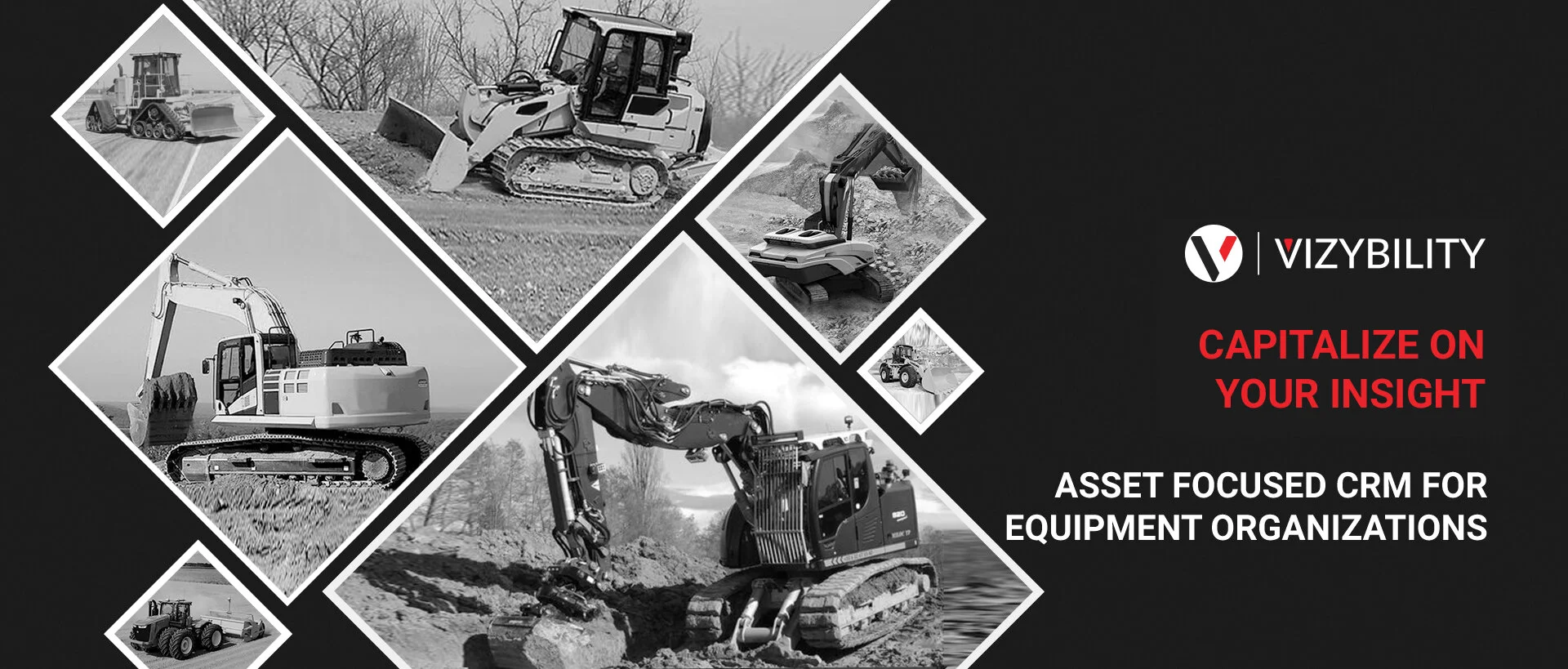Asset Focused CRM vs. Basic CRM: What’s the Difference?
Well, first, let me ask you this. Why is it important to construction or other types of capital equipment dealers?
Most companies understand their need for a CRM system – to view customer information, to store data about the customer’s business and on the people that work there. These are the people we talk to, call on and discuss business transactions with. By having a CRM for the whole organization, it’s easy to work together, know the last task completed with each customer and provide a quality customer experience.
And let’s not forget the one thing we can be sure of: almost every interaction with a customer is about equipment; either new, used or one they already own.
Here’s a common example: imagine a customer calls looking for information on parts for a machine they own. They are in the field and not near the equipment. When they call and say “I need a pump for Unit 123” the experience can go two ways:
A) You say, “Thank you, we would love to help you, but can you call back with the year, make, model and serial?” which can extend the time the customer’s equipment is down.
or
B) You respond with “No problem, I see here Unit 123 is a 2018, serial number XYZ0019, let me find that pump for you and send it out”. To which they will obviously respond with, “You guys are awesome! Thank you!”
That’s the difference between a basic CRM system and one that is Asset Focused.
In our industry, we work with equipment or vehicles every day. Asset Focused CRM lets you store information about your customer’s reason for working with you. It allows you to build a closer relationship with your customer, giving them an individualistic experience and service.
Here are 3 Key reasons to implement Asset Focused CRM:
1. Become a Trusted Advisor to your customers by understanding their fleet. This helps you understand their needs and provide insights to your customers; including operating costs and disposition planning. Your CRM should have live market price evaluation so your conversations with your customers bring value each and every time.
2. Understand when new sales opportunities will happen and where they are. If you sell backhoes and you know which customers own 5-10 year old backhoes, of any brand, you know exactly who’s in the market for a new machine. Now you know who to target with your marketing campaigns. Reaching more potential costumers!
3. Find sales opportunities that you couldn’t see before. By collecting information about your customer’ s fleets your inventory expands 100 fold. Now when someone asks for a particular piece of equipment, even if you don’t have it in stock, you can probably find another customer that is looking to sell theirs, opening the possibly to sell them a new machine.
Now, you are no longer just a vendor. Being able to manage information about your customer’s entire fleet opens up the dealership, transforming the relationship into a partnership. And so, as your team evaluates their CRM strategy and it’s requirements, be sure that your CRM is capable of storing detailed, serialized equipment information about each of your customers. Make sure it’s Asset Focused because lets face it, it’s the reason your customers are working with you.
Want to see more? Contact me or check out https://www.vizybility.com

